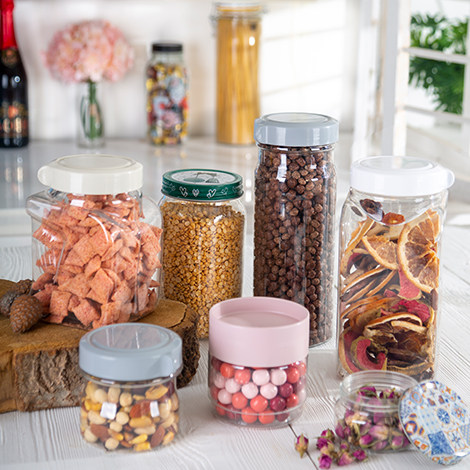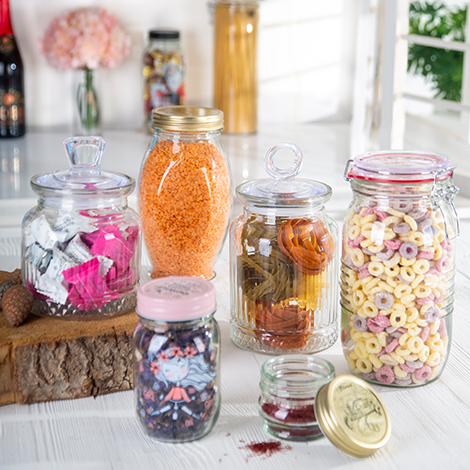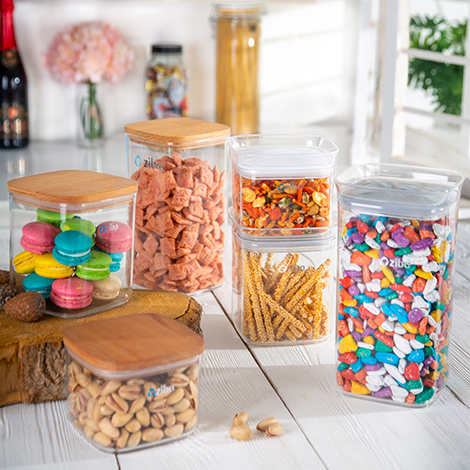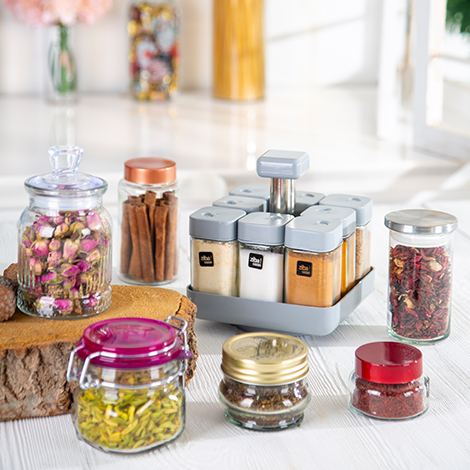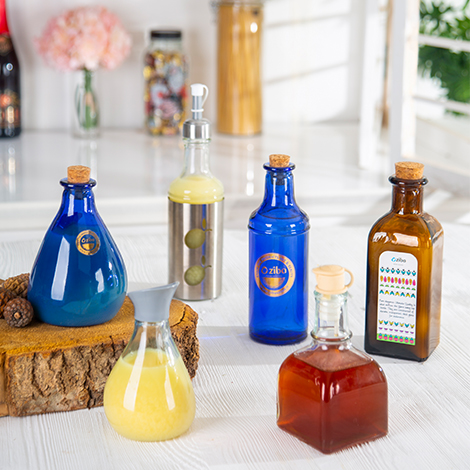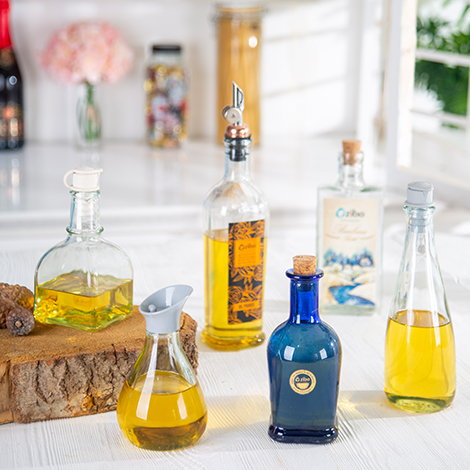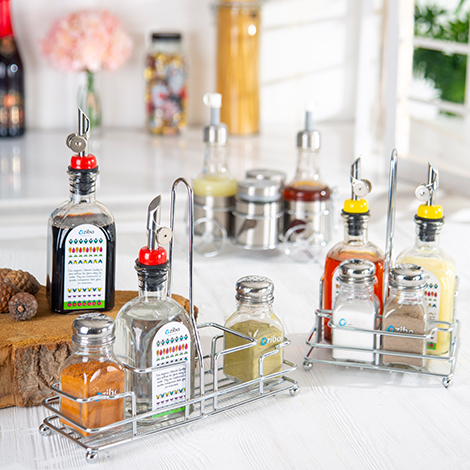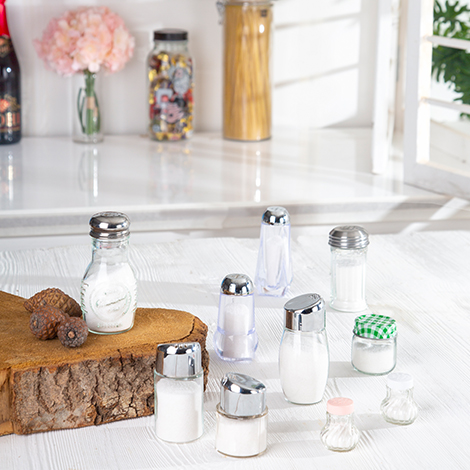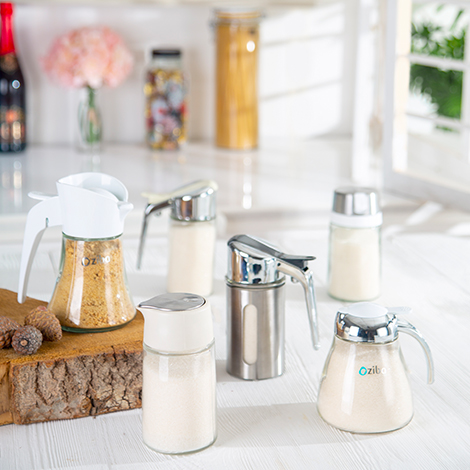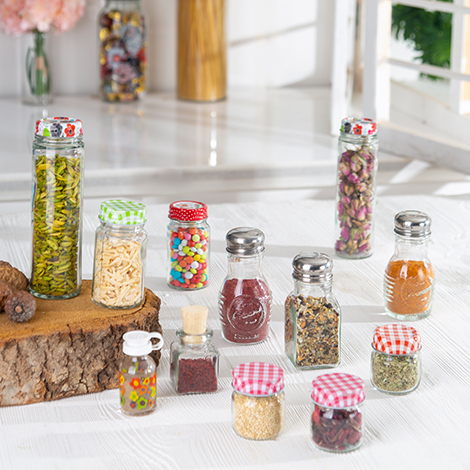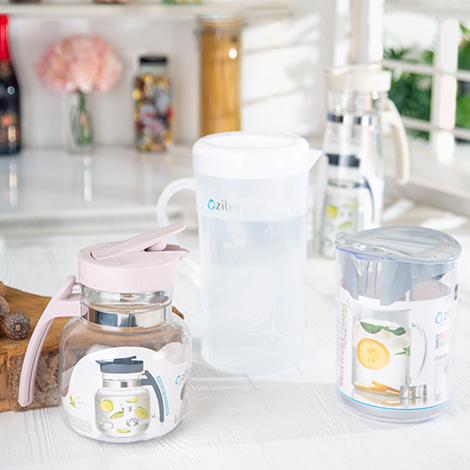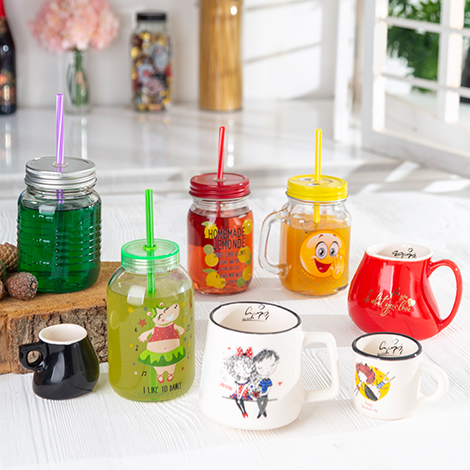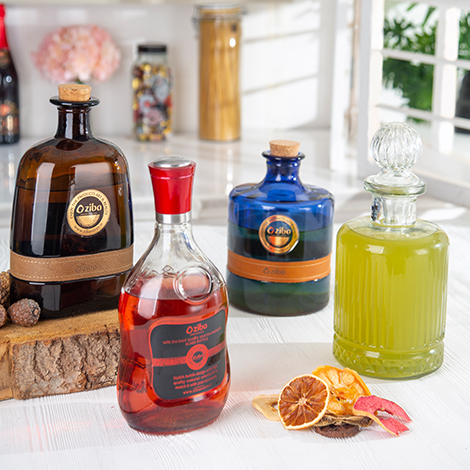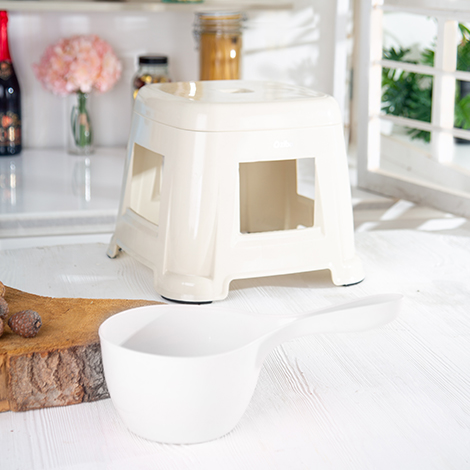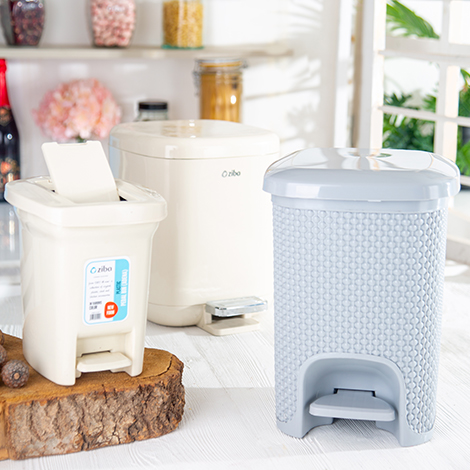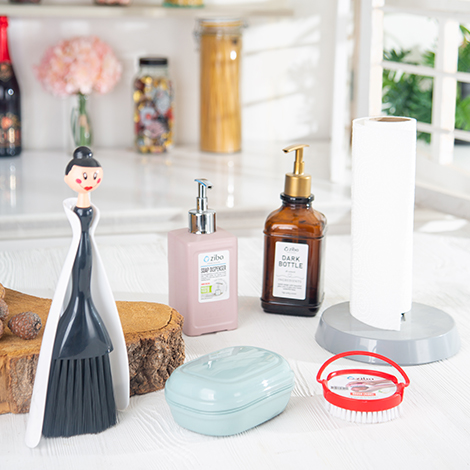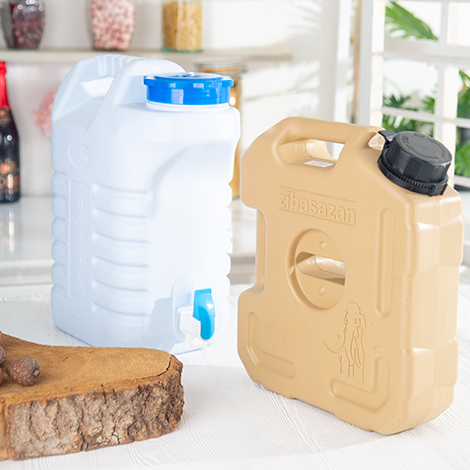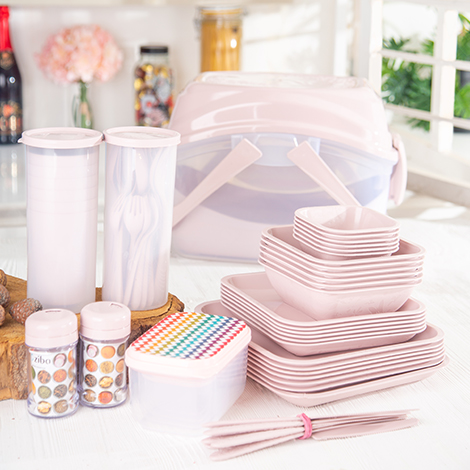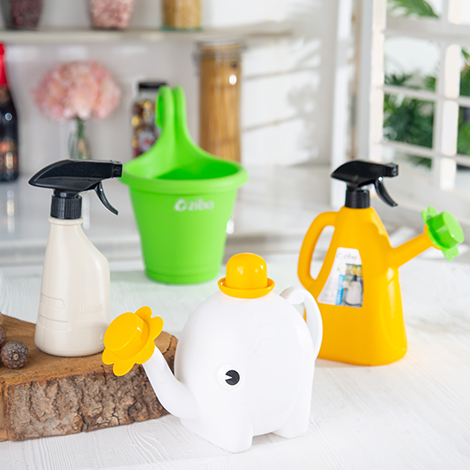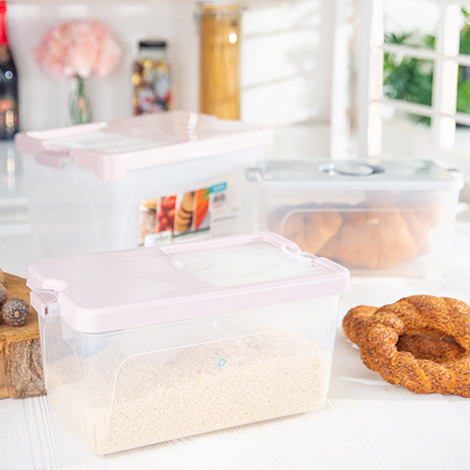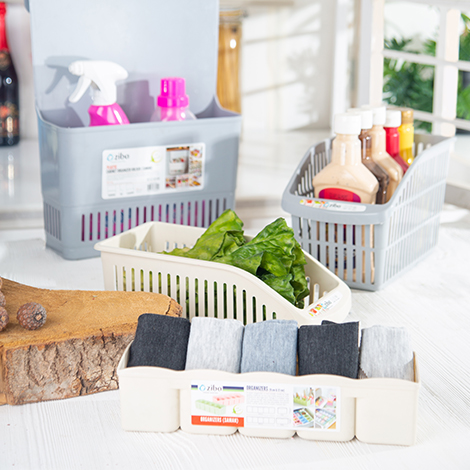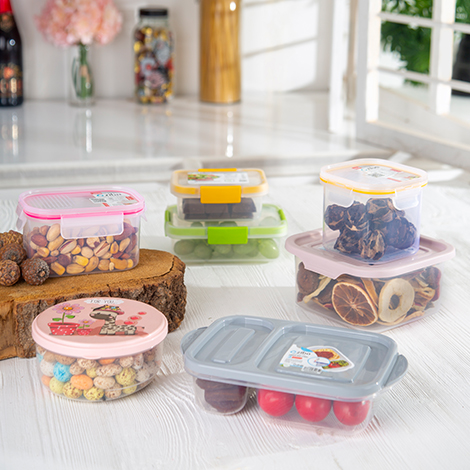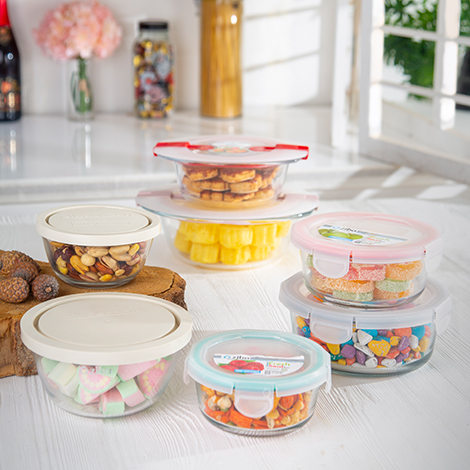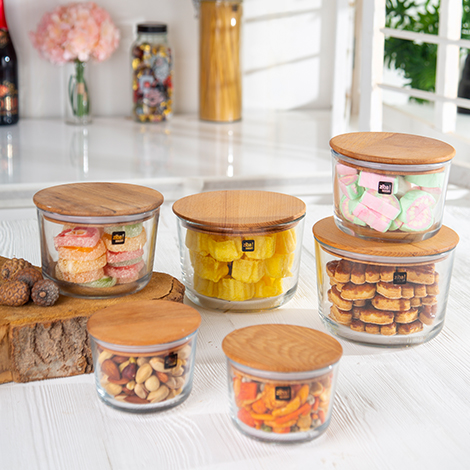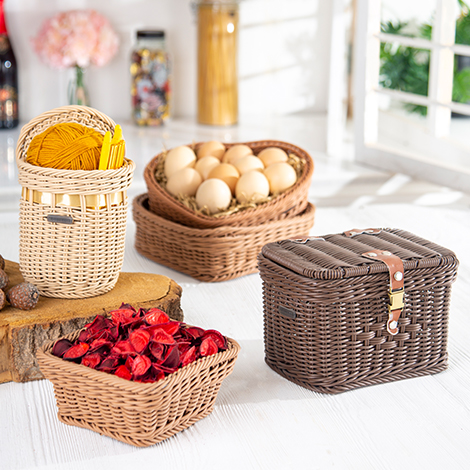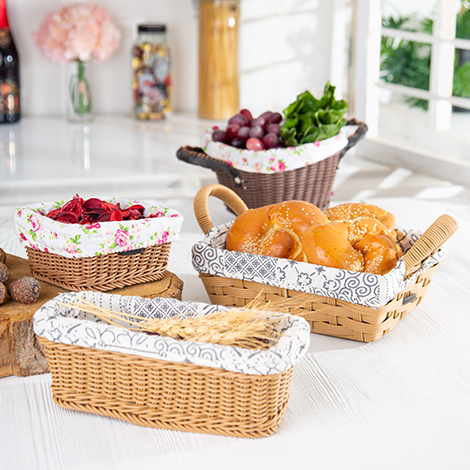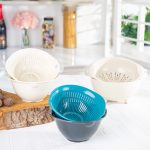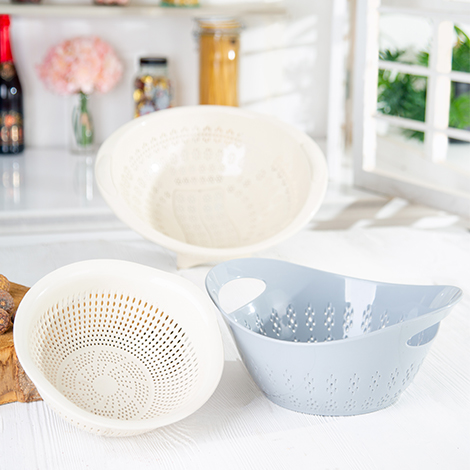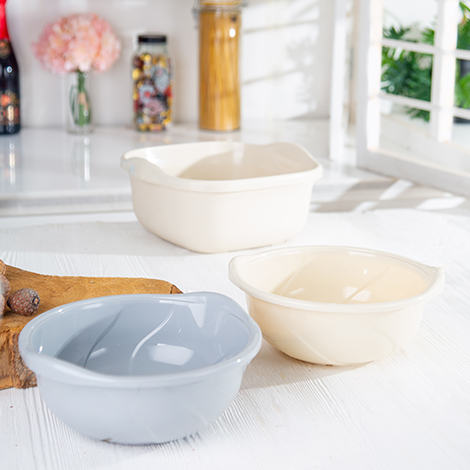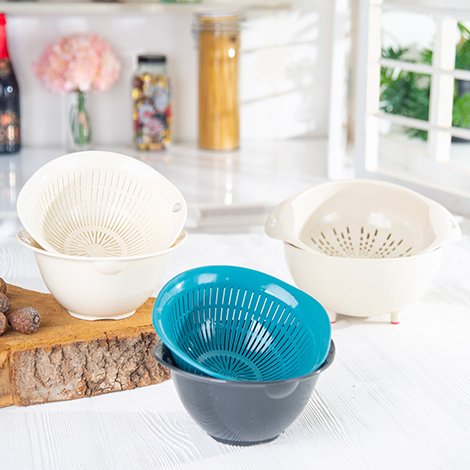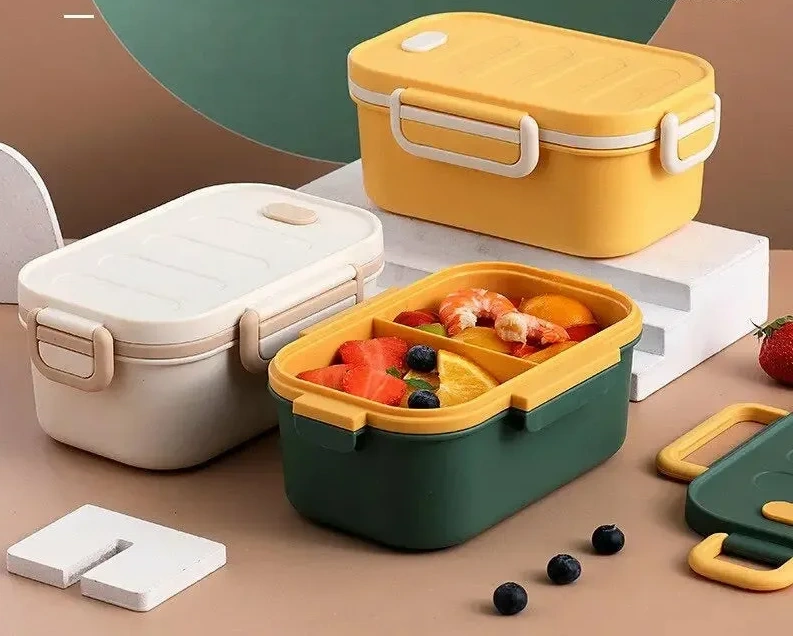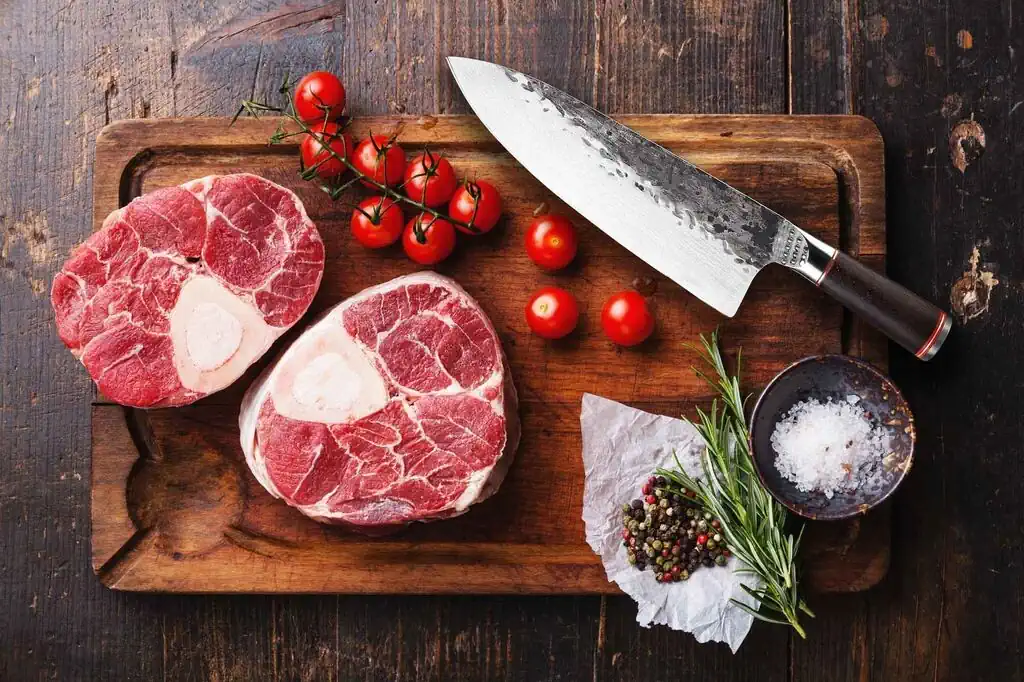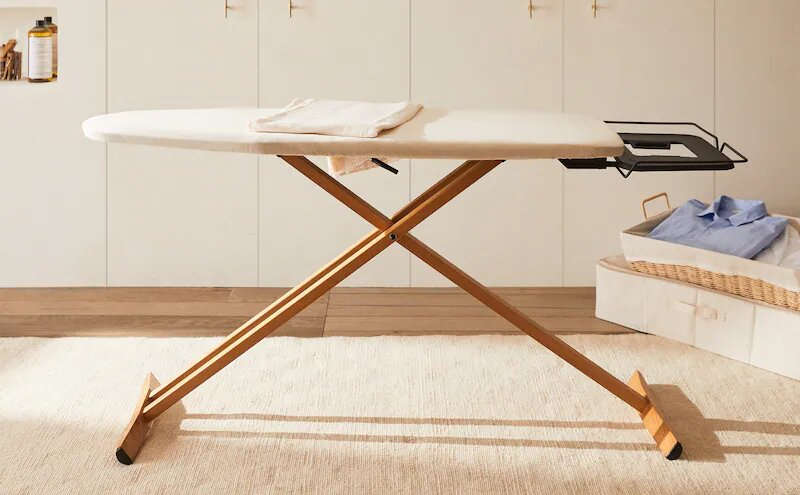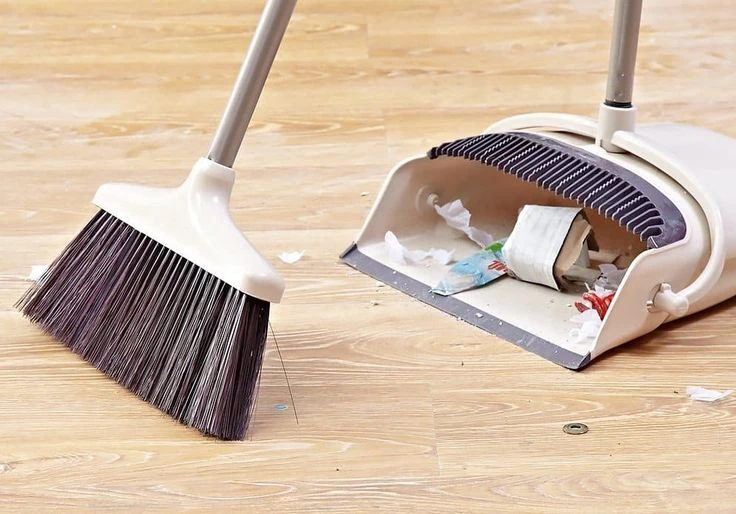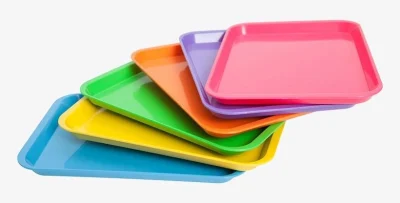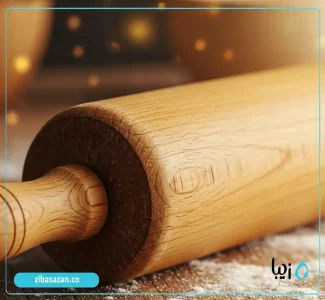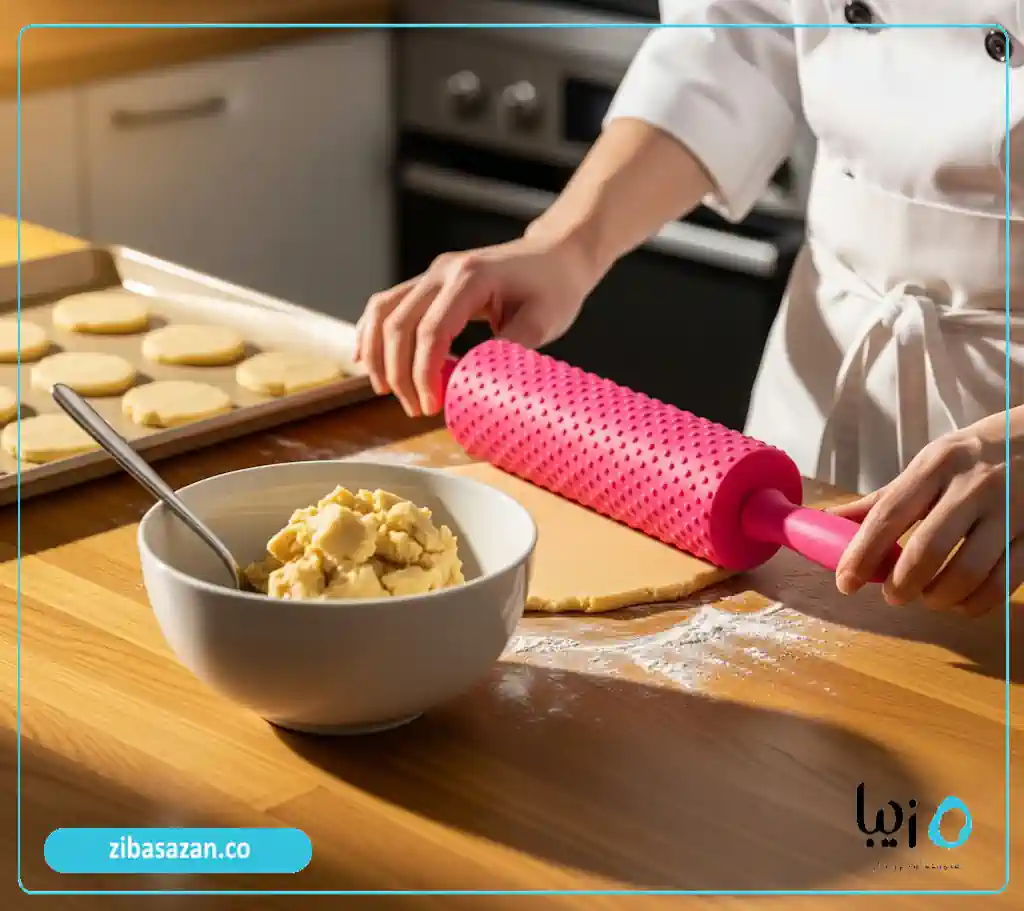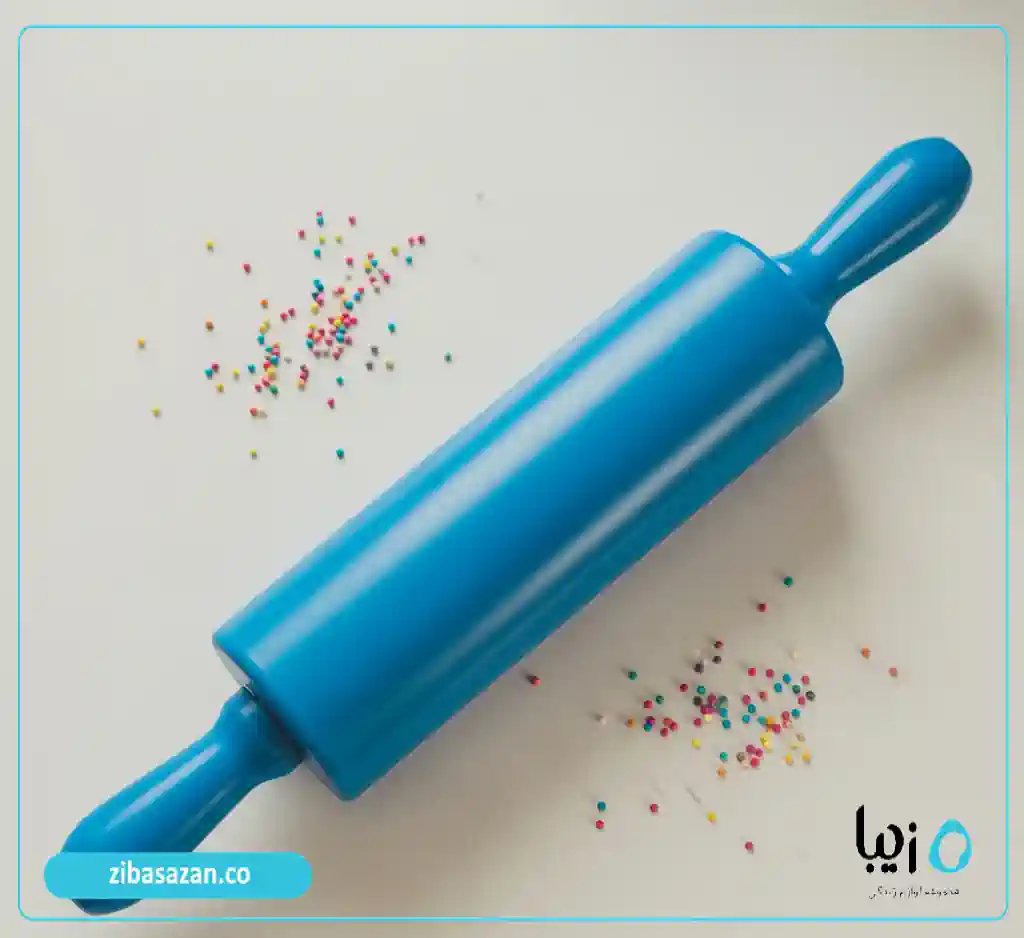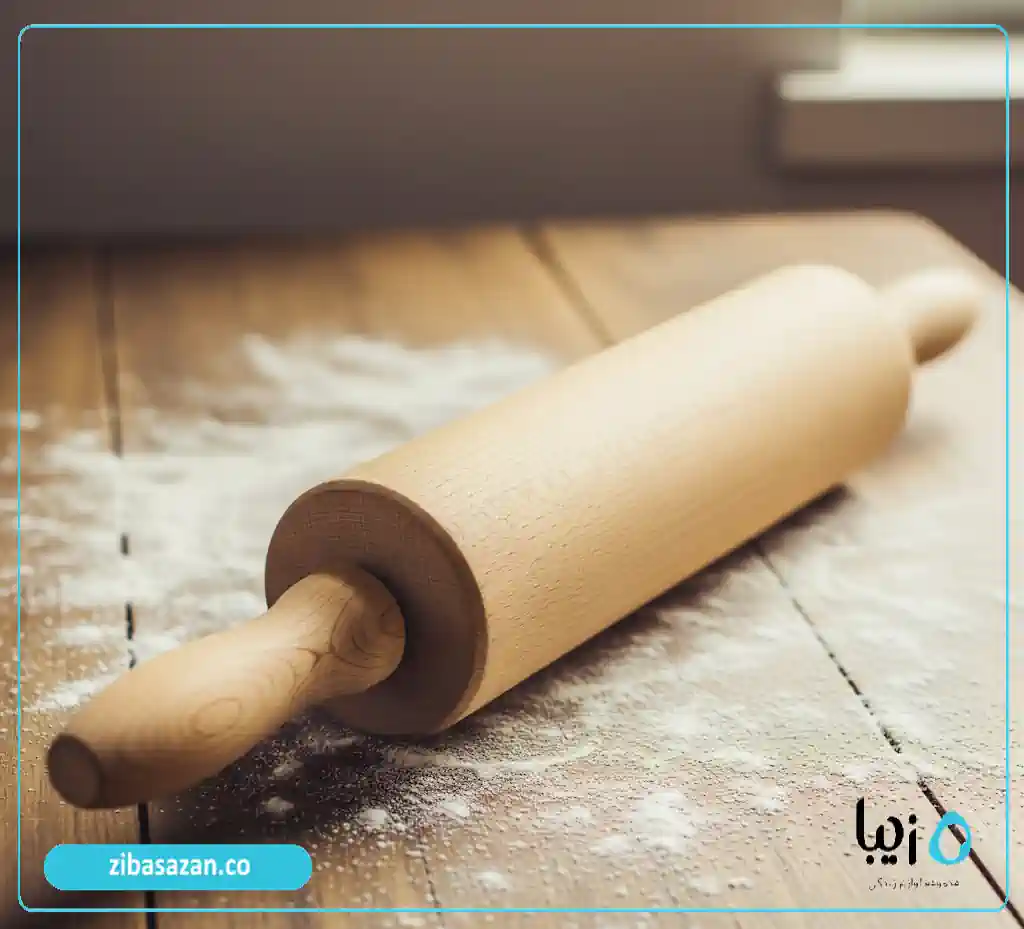There’s something truly delightful about the aroma of freshly baked cake or homemade cookies filling your kitchen. But if you’ve ever tried to roll out dough evenly, you know it’s not always easy. One side may end up thinner than the other, or the dough might stick to your rolling pin and lose its shape. That’s where a good rolling pin becomes essential.
A rolling pin isn’t just a basic kitchen tool — it’s the secret to achieving smooth, uniform dough, perfectly baked treats, and a professional-looking finish for your homemade pastries. Choosing the right rolling pin can significantly improve your results. In this comprehensive guide, we’ll explore what a rolling pin is, the different types available, and how choosing the right one can help you bake like a pro. Let’s unlock the secrets to flawless baking together!
فهرست مطالب
- 1 What Is a Rolling Pin and Why Is It Essential for Home Baking?
- 2 Types of Rolling Pins and Their Uses
- 3 Wooden, Plastic, or Silicone? Comparing Rolling Pin Materials
- 4 Best Rolling Pins for Traditional vs. Modern Baking
- 5 How the Right Rolling Pin Improves Your Results
- 6 Choosing Based on Dough Type and Kitchen Habits
- 7 Rolling Pin Care Tips to Boost Lifespan
- 8 Is an Adjustable Rolling Pin Right for Home Bakers?
- 9 Can I pour hot water into a plastic spray bottle? Safety tips and warnings
- 10 Plastic or Metal Bidet? Which is the Smart Choice? (A Complete Guide)
- 11 How to Clean and Maintain Plastic Kitchenware for Long-Lasting Use
- 12 The Ultimate Guide to Cleaning and Sanitizing Your Spigot Dispenser Without Harsh Chemicals
- 13 Choosing a Durable and Leak-Proof Screw-Cap Water Bottle: A Guide
What Is a Rolling Pin and Why Is It Essential for Home Baking?
A rolling pin is a cylindrical kitchen tool used to flatten and smooth dough for bread, pastries, cookies, pizzas, and fondant. Its main function is to create even dough thickness — a key factor in ensuring proper and consistent baking.
Why Dough Thickness Matters
Uniform dough thickness is crucial in baking for several reasons:
- Even Baking: If the dough isn’t the same thickness throughout, thinner parts may overcook or burn while thicker parts remain undercooked — especially important for cookies and pies.
- Perfect Texture: Uniform thickness helps achieve the desired texture, like even crispiness in cookies.
- Professional Appearance: Evenly rolled dough looks neater and more polished.
Types of Rolling Pins and Their Uses
Rolling pins come in various styles, materials, and designs, each suited for different baking needs. Knowing these differences helps you make the right choice.
- French Rolling Pin
- Design: Made of wood, tapered at both ends, with no handles.
- Best for: Soft, buttery doughs, bread, tarts, and delicate pastries.
- Advantages: Greater control over pressure, better dough feel, comfortable weight.
- American Rolling Pin (with Handles)
- Design: A central cylinder with fixed or rotating handles on both ends.
- Best for: Versatile use — cookies, pastries, pizza, and fondant.
- Advantages: Easy to use, distributes pressure evenly, available in various sizes and materials.
- Marble Rolling Pin
- Design: Heavy marble cylinder with handles.
- Best for: Doughs that need to stay cool like pie crusts, puff pastry, and biscuits.
- Advantages: Heavy weight aids in rolling, cool surface prevents dough from sticking.
- Adjustable Rolling Pin
- Design: Comes with removable rings on both ends to set specific dough thicknesses.
- Best for: Professional-level precision, ideal for cookies, fondant, and patterned doughs.
- Advantages: Ensures uniform thickness, great for beginners.
Wooden, Plastic, or Silicone? Comparing Rolling Pin Materials
The material of your rolling pin affects both performance and maintenance. Here’s how they compare:
Wooden Rolling Pins – Classic and Effective
- Performance: Natural texture grips dough slightly, offering control. Requires frequent flour dusting.
- Durability: Long-lasting with proper care, nostalgic feel, ideal for most doughs.
- Pros: Lightweight (depending on wood type), tactile feedback, affordable.
- Cons: Needs regular oiling, sensitive to moisture, can absorb odors and colors.
Plastic Rolling Pins – Lightweight and Hygienic
- Performance: Smooth surface, less sticky. Lightweight, great for soft doughs.
- Durability: Dishwasher-safe, doesn’t absorb smells or stains.
- Pros: Easy to clean, budget-friendly, sanitary.
- Cons: Less tactile control compared to wood.
Silicone Rolling Pins – Nonstick and Flexible
- Performance: Naturally nonstick, minimal flour needed, perfect for sticky doughs.
- Durability: Highly resistant, flexible, non-toxic, dishwasher-safe.
- Pros: Excellent nonstick surface, easy to clean, ideal for fondant.
- Cons: Can feel less precise for some, slightly more expensive.
Best Rolling Pins for Traditional vs. Modern Baking
For Traditional Baking (Bread, Pie, Tart)
French-style wooden pins or handled wooden pins are ideal. They offer excellent control, help you shape dough intuitively, and provide the right weight for even rolling.
For Modern Baking (Cookies, Fondant)
Adjustable rolling pins are perfect for precise thickness. Silicone rolling pins are also great for working with sticky doughs or fondant. Marble pins help keep buttery dough cool and structured.
How the Right Rolling Pin Improves Your Results
A good rolling pin does more than flatten dough — it elevates your entire baking process:
- Consistent Thickness: Prevents uneven baking, burns, or undercooking. Ensures the right texture — whether soft, crisp, or flaky.
- Proper Aeration: Certain pins (like French pins) let you control pressure to maintain air in the dough, especially useful for bread or cake doughs.
- Reduced Sticking: Nonstick materials or proper flouring keep dough from sticking and improve shape and presentation.
Choosing Based on Dough Type and Kitchen Habits
- Sticky or Thin Doughs: Silicone pins are best — minimal sticking, low flour needed.
- Buttery or Pie Doughs: Use marble rolling pins or chilled wooden/metal ones to keep dough cold and maintain structure.
Rolling Pin Care Tips to Boost Lifespan
Proper care keeps your rolling pin in great shape and ensures kitchen hygiene:
Cleaning
- Wood: Wash with warm water and mild soap. Don’t soak or use a dishwasher. Dry immediately and air dry. Oil monthly with food-grade mineral oil.
- Plastic & Silicone: Dishwasher-safe. Dry completely to avoid water spots.
- Marble: Wipe with a damp cloth and mild soap. Avoid dishwashers and abrasive cleaners.
Storage
- Store in a cool, dry place. Hang handled pins or place tapered ones on a stand or in a deep drawer to avoid damage or rolling.
Is an Adjustable Rolling Pin Right for Home Bakers?
Adjustable rolling pins offer precision and convenience, but are they worth it?
Pros:
- Accurate Thickness: Perfect for fondant, cookies, and uniform pastries.
- Less Guesswork: Ideal for beginners.
- Customizable: Easily switch between thickness levels.
Cons:
- Higher Price: More expensive than standard pins.
- Bulky: Takes up more storage space.
- More Parts: Requires careful cleaning and maintenance.
If you bake frequently or value precision, this could be a smart investment. Otherwise, a high-quality wooden or silicone pin might be all you need.
Frequently Asked Questions
What size rolling pin is best for home use?
A pin 12–18 inches (30–45 cm) long works well. Longer pins suit larger doughs; shorter ones fit small kitchens or delicate tasks.
How do I prevent dough from sticking?
- Flour the surface and pin (especially for wood or metal).
- Chill the dough before rolling.
- Use silicone pins for nonstick ease.
- Roll between parchment paper for cleaner handling.
Are metal rolling pins good for baking?
Yes — especially if chilled. Stainless steel pins are hygienic and help roll dough smoothly. They’re great for temperature-sensitive doughs, though they may lack the tactile feel of wood.
Choosing the right rolling pin is a key step in leveling up your home baking skills. From classic wooden models to modern nonstick and adjustable designs, each has unique advantages based on your dough type and baking goals.
Zibasazan, a leading kitchenware manufacturer, offers a wide selection of high-quality rolling pins to meet every baker’s needs. Whether you’re aiming for convenience, precision, or professional results, Zibasazan has the perfect rolling pin for your kitchen.


